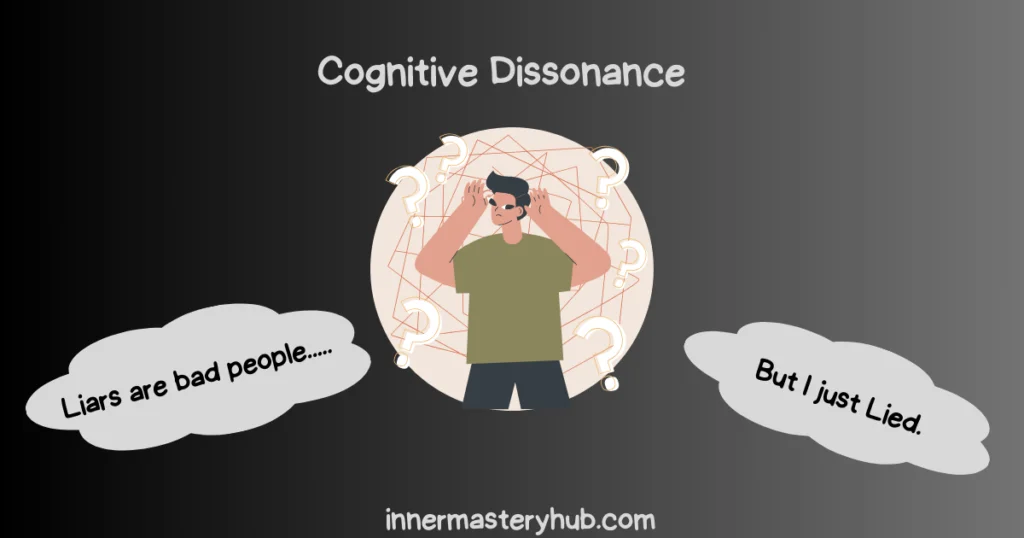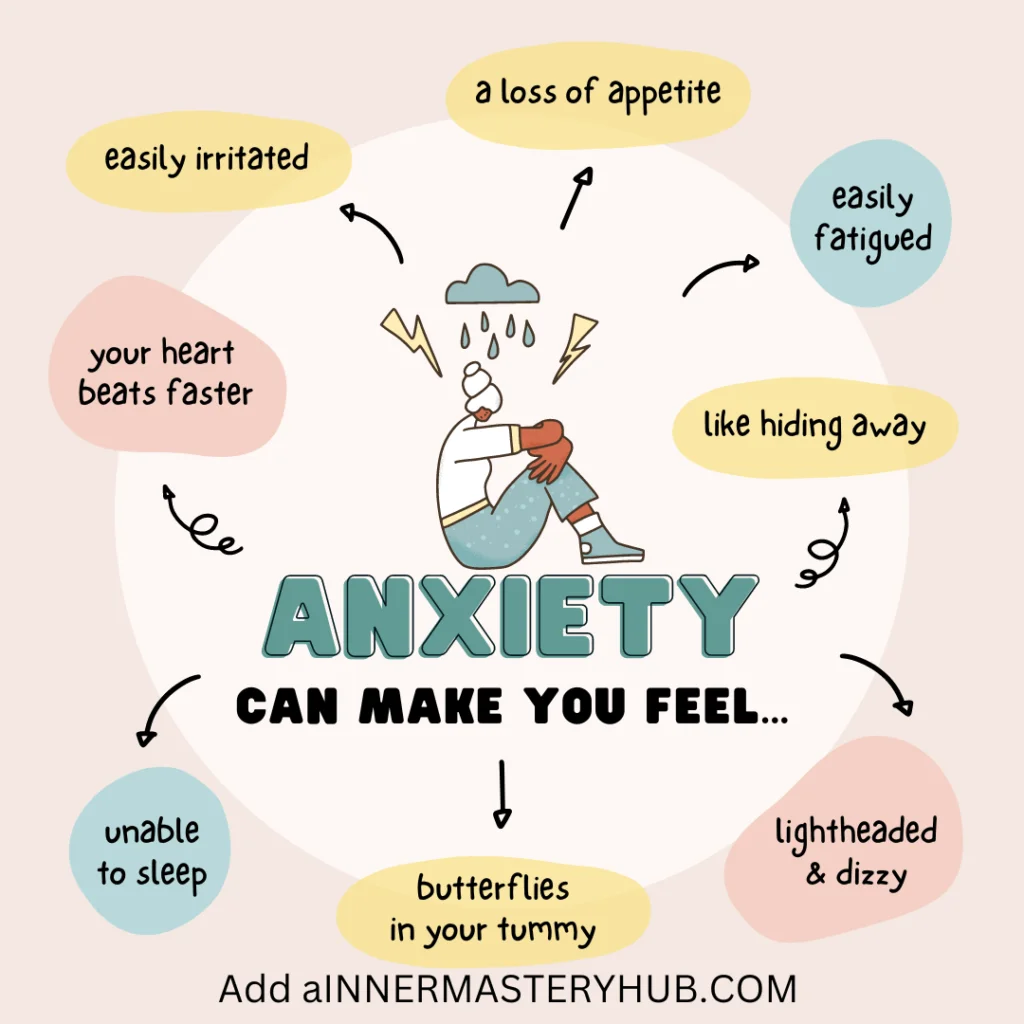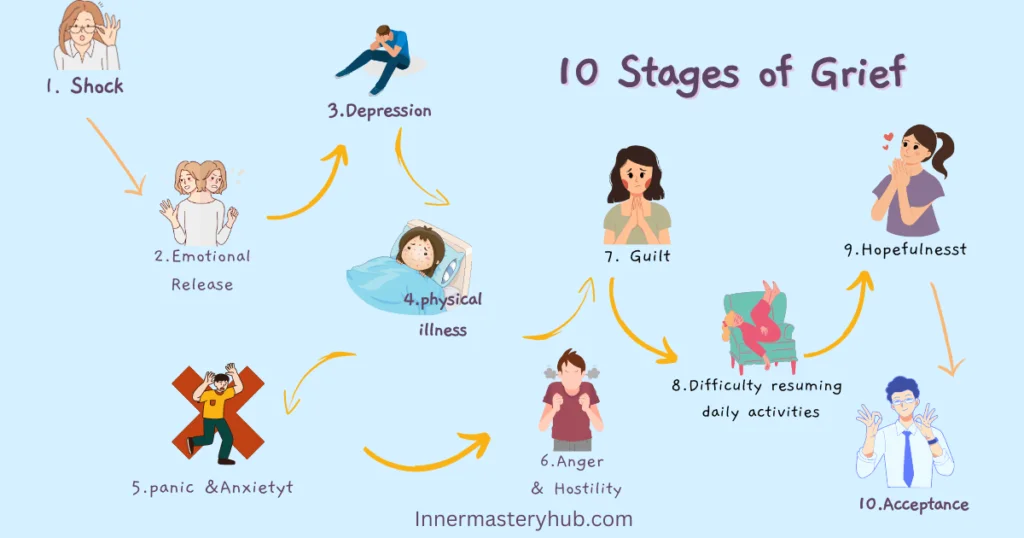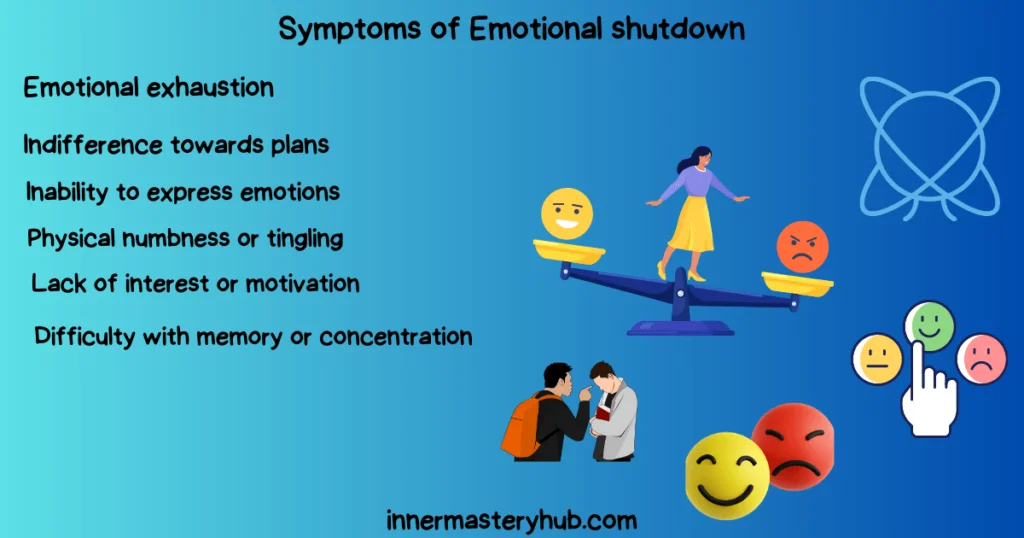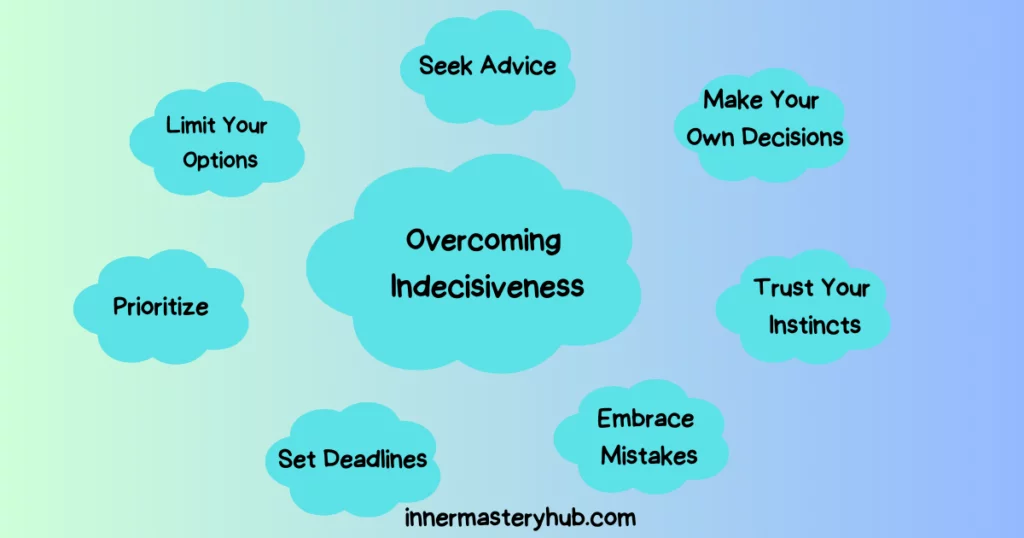
Uncertainty has a subtle way of infiltrating our lives. Whether we’re worrying about our profession and life choices, having problems making out, thinking about relationships, or even just attempting to decide a dish to make, it leaves us feeling stuck and unproductive. A never-ending cycle of tension, anxiety, and self-doubt.
But guess what? Overcoming indecision is this as it seems. The blog post is here to help you out! We’ll equip you with some practical strategies on how to be less indecisive today, awake tomorrow rather than more indecisive today, and conquer making the indecision so awake tomorrow you can start making decisions confidently and clearly. Ready to dive in? Let’s explore this article helpful this article!
Table of Contents
The psychology of indecision: Why we have such a hard time making decisions
The psychology of indecision: The reasons behind our difficulty in making choices
The first step in solving the puzzle of indecision is realizing that our brains are programmed to avoid uncertainty. For instance, when faced with difficult decisions, our fear of failing because we made the wrong choice might immobilize us.
This fear of failing relates to the potent idea of loss aversion, which holds that humans are more concerned with possible losses than with possible gains and advantages.
We may become overwhelmed and stuck in indecision because there are so many options available to us in today’s environment. By exploring these inner depths, we acquire the skills necessary to make wise decisions and overcome indecision.
Benefits of Being Less Indecisive
Embracing decisiveness brings a wealth of potential benefits, too. First and foremost, it boosts productivity by freeing up time that would otherwise be spent deliberating.
Instead, you can dive into meaningful action, propelling yourself forward. It cultivates a profound sense of self-confidence and self-efficacy. You trust your instincts and make choices in alignment with your values and aspirations.
Decisiveness also sharpens problem-solving skills and fortifies resilience. Accepting the outcomes of your decisions, regardless of the outcome, builds character and inner strength.
Reducing indecision alleviates stress, fostering emotional well-being and overall balance. In the grand tapestry of your life together, learning to be less indecisive empowers you to lead a focused, gratifying, and harmonious existence.
Characteristics of Indecisive People
Indecisive individuals possess a unique set of characteristics that make decision-making challenging. They constantly second-guess themselves, questioning every choice, which leads to delays and indecision. Procrastination becomes a habit as they hope the “right” choice will reveal itself.
Seeking excessive information and advice from others is expected, driven by a fear of making mistakes. Their high perfectionistic standards intensify this fear of making decisions for them, causing fear of failure or criticism to overcome.
This perfectionism can lead to analysis paralysis, where options and potential outcomes are overanalyzed, resulting in more troublemaking for them.
Stress and anxiety are prevalent when making important decisions because people worry about the possible outcomes. The first step to dealing with and overcoming indecision is recognizing these characteristics.
Picture Alex, a gifted and driven professional, at a junction in the road between two promising new careers. A well-paying corporate job, on the one hand, promises career advancement yet requires a lot of overtime. Conversely, a start-up position offers the opportunity to grow with the business and a flexible work-life schedule.
Trapped in a maze of uncertainty, Alex waits for the “right” decision to suddenly become apparent. He actively seeks out additional viewpoints and information in the hopes of shedding light on his predicament, consulting mentors, friends, and relatives.
But alas, fear grips him tightly, paralyzing his every move. The specter of potential losses and adverse outcomes haunts the fear of making the wrong choice. Will he sacrifice precious free time with the corporate job or risk financial security with the start-up venture?
This gripping situation embodies indecisiveness, with psychological factors like loss aversion, fatigue, and the fear of making mistakes lurking beneath the surface.
You’re hitting “Decision fatigue.”
One of the most powerful and natural enemies of indecision is “decision fatigue.” When we make too many decisions in too little time, it manifests. Similar to other types of exhaustion, it depletes our mental reserves, leaving us feeling worn out and depressed. This can then result in snap judgments or total inaction.
The deluge of suggestions and possible outcomes may cause Alex to become even more perplexed. He may even start using “eeny, meeny, miny, moe” out of anxiety!
It’s critical to simplify decision-making as much as possible to fight decision fatigue: complete vital chores first, prioritize necessary tasks, restrict your options, and make judgments when your mental energy is at its peak. Keep in mind that the goal is to make a selection that is sufficient, not the ideal one.
7 Ways to Be Less Indecisive
- Reduce the number of possibilities You Examine. To begin, reduce the number of possibilities you examine. An overwhelming number of options might exacerbate indecision. Choose only a few alternatives that you find most intriguing.
- Set priorities. Not every choice has the same urgency or significance. Determine your top priorities and concentrate on making those choices first.
- Set Deadlines. Setting deadlines might help you make decisions more quickly by fostering a sense of urgency. Establish clear deadlines and make an effort to meet them.
- Have Faith in Your Instincts. Often, your intuition will lead you more accurately than hours of investigation. If a choice seems correct to you, it most likely is.
- Seek Advice, But Make Your Own Decisions: While listening to other people’s opinions is beneficial, keep in mind that you have the last say. Don’t let the opinions of others influence your decisions.
- Accept Mistakes. Recognize that life is full of mistakes. You must make a decision; else, you will never know how it will turn out. It is still a worthwhile educational experience even if it does not work out.
- By practicing mindfulness, you can lower your anxiety, maintain attention, and make decisions more easily. Use mindfulness practices like yoga, deep breathing, and meditation to boost your self-esteem.
9 Simple Ways to Stop Being So Indecisive
Simple techniques exist to assist people and groups in getting over hesitation and making better decisions.
- Set Specific Goals. To begin, make sure you know exactly what you hope to accomplish. Having well-defined goals can help you make decisions by acting as a road map.
- Employ Decision-Making Techniques. To impartially assess your options, use decision-making techniques such as SWOT analysis, decision matrices, and pros-and-cons lists.
- Divide Large Decisions into Smaller Tasks. Making big decisions can be intimidating. The decision-making process can be easier to handle if it is divided into smaller jobs.
- Steer clear of perfectionism. Trying to make the ideal choice can paralyze you. Keep in mind that making a decision that is adequate is preferable to not making one at all.
- Put in place a decision-making procedure. The optimal choice can be made by taking into account all points of view with the aid of a methodical decision-making process.
- Acknowledge and Control Your Emotions. Feelings can impair our judgment. We can make better, more logical decisions if we can identify and control these emotions.
- Make Use of Your Past Experiences. Make use of your past experiences and knowledge to guide your choices.
- Develop your patience. because it’s essential when making decisions. Making quick decisions can have negative consequences.
- Practice Making Decisions. Just like every other ability, decision-making gets better with use. To strengthen your decision-making ability, develop the habit of making little decisions fast.
You always think there’s a better option and are hitting “analysis paralysis.”
It can be a roadblock. There’s always a better option just around the corner, right? You keep searching and evaluating but never actually make a good decision yourself. You must recognize when you feel anxious in this loop and do something about it.
One trick that works is limiting the number of options or how long you spend considering them. And hey, here’s a reminder: the perfect choice might not even exist! Waiting for too many options or around for it can make you miss some excellent outcomes.
So take action, my friend! Move forward, create new job opportunities, and learn valuable lessons for future decisions. You got this!
You lack confidence
A lack of self-doubt, confidence, and being afraid can sometimes be a hurdle people hesitate to overcome indecisiveness and confidence. In such cases, it’s important to remember that every tough decision people hesitate to make is a learning opportunity, whether right or wrong.
Adopt a growth mindset, and a person will feel confident to embrace the journey of becoming a more decisive individual.
Consider the case of Jane, a project manager in a leading software company. She has to decide on the software development methodology for an upcoming project. She’s caught between the traditional waterfall model and the modern agile model.
If she chooses the waterfall model, she’ll know the entire roadmap from the start, but changes mid-project will be difficult. If she opts for agile, changes can be accommodated easily, but the project direction may pivot frequently. Jane finds herself afraid, unable to make a decision.
Applying the earlier strategies, Jane first sets a deadline for this important decision. She then defines her problem clearly: choosing the most suitable methodology that balances predictability and flexibility. Jane gathers information about both methodologies, generates alternatives (like using a hybrid model), evaluates them, and finally decides within her deadline.
By following this process, Jane breaks free from this cycle of paralysis and makes an informed choice despite uncertainty.
Develop a Decision-Making Process
In order to overcome poor choices and promote decisive action, a systematic method must be established. To assist you in creating your own, below is a detailed guide:
Describe the issue or opportunity.
Begin by clearly defining the opportunity that requires a choice or the issue that requires a decision. An efficient decision-making process is predicated on a well-defined problem or opportunity.
Gather Information.
- Collect all the necessary data and information related to your problem or opportunity. Use reliable sources and gather various perspectives to prevent bias in your decision.
Generate Alternatives.
List all of the potential fixes or strategies. To guarantee that a wide variety of solutions are taken into consideration, promote originality and receptivity.
Assess the Alternatives.
Consider the possible effects, viability, hazards, and compatibility of each option with your goals. Utilize decision-making instruments like as cost-benefit analysis, decision matrices, and SWOT analysis to aid in this process.
Make the Decision.
- Select the option that is most advantageous based on your analysis. Keep in mind that it only needs to be excellent enough given your existing knowledge and limitations.
- Act on your decision. Create a thorough action plan that specifies the actions required to carry out the decision and who is in charge of each one.
- Review the decision and its outcome once it has been put into action and enough time has passed to see the results.
Practice Making Smaller Decisions
Practicing with more minor decisions is like a workout for quick decision-making cognitive muscles. It’s a fantastic way to strengthen them! Start by making quick choices about what’s for lunch, which route to take, or which movie to watch on the weekend. The goal of quick decision-making isn’t perfection but rather to decide swiftly and confidently.
Remember, there’s no such thing as a perfect decision – what matters is that you choose and learn from the experience. With time, this practice will boost your comfort and confidence in making decisions, empowering you to tackle more extensive, complex choices.
So go ahead, don’t get afraid, and embrace the ability to make decisive, informed decisions – a critical skill that can transform your personal and professional skills.
Set Time Limits
In order to overcome indecision and become a more decisive person, it is crucial to establish time constraints. You can avoid the never-ending cycle of reflection and procrastination by setting a deadline for making a big decision in advance.
It’s a fine line since you don’t want to give yourself too much time to make the incorrect choice forever, but you do want to allow yourself enough time to research options, weigh your options, and make an informed choice.
Start by setting a reasonable time limit based on the complexity and impact of the decision. A shorter time frame suffices for more straightforward decisions, while a longer time frame may be required for more complex decisions. Once the time limit is up, it’s time to decide with the information you have.
Remind yourself it’s better to make a good decision with the information available within the set time management frame than to delay the next right or wrong decision in the quest for perfect information. These same time management constraints will encourage efficiency and action, helping you break indecisiveness.
Understand the scope of the decision.
Making wise choices requires that you comprehend the ramifications of the important choice you are about to make. It includes analyzing the possible effects of the significant decision, taking into account who or what might be impacted, and determining the long-term ramifications.
One major decision that can have a significant impact on your personal life, professional path, and financial security is moving for work. By ensuring that you completely understand the repercussions of making a poor choice, this phase helps you make more educated and self-assured decisions.
A symptom of other mental health conditions
Being indecisive can be a symptom of underlying mental health issues as well as a personality trait or a sign of a lack of confidence.
Making decisions, for instance, can be frightening for people with anxiety disorders because they worry about the consequences of making the wrong decision. Depressed individuals may also have trouble choosing important jobs because they may not have the drive or energy to consider all of their options and come to a decision.
Anxiety about making the next decision and whether it will be the right one are symptoms of obsessive-compulsive disorder. In order to comprehend and treat these mental health issues, it can be essential to identify indecision as a symptom.
Make decisions for yourself.
Taking charge of your decision-making is a key component of both professional and personal growth. In the end, cultivating this autonomy results in a more contented and meaningful existence by boosting self-esteem and promoting personal development. Since your values serve as the foundation for your decisions, start by recognizing them.
Recognize your objectives, priorities, and desired outcomes. Then, compare your selections to these values and objectives when you have to make a decision. Making decisions that are in line with your personal values and goals reduces stress, improves decision-making, and produces more fulfilling results.
Remember, the goal is not to make perfect decisions but to make the best decisions for your new job.
Consider the example of Alex, a college student finalizing his major. Alex has always had an interest in both literature and computer science.
After careful thought, he realizes that he values creativity and innovation, which are integral to his identity. He recognizes that while he loves literature, his desire to innovate and create aligns more with a career in computer science as a new job.
By aligning his next major decision with his core values and goals, Alex decided to major in computer science. This choice not only resonates with his aspirations but also shapes a path that leads to a more fulfilling and satisfying future for
Avoid questioning your final decision.
Avoid questioning your decision once you made one. Doubting your own decisions can lead you back into indecisiveness and detract from your ability to decide how to decide and move forward.
Instead, embrace your choice, take responsibility for it, and be prepared to deal with the positive or negative consequences. Every decision that doesn’t work out as planned offers valuable learning opportunities for future deIt’sons.
Making the perfect option isn’t always the goal of successful decision-making; rather, it’s about making a decision and seeing it through to completion. Consider it an opportunity to grow, modify your strategy, and enhance your future abilities if your choice has bad effects.
Consider the decision of choosing an ice cream flavor at a parlor. You decide, set a time limit, gather information by sampling different flavors, evaluate them based on taste and dietary preferences, and finally, choose chocolate, vanilla, or strawberry; embrace your decision and enjoy your ice cream.
Remove options from the table.
It’s important to note that focusing on a solution doesn’t necessarily mean disregarding all others. Instead, it means homing in on one potential choice and examining the potential benefits of iLet’sdepth. Let’s take the example of a business to decide on a software solution for project management. They have narrowed their options to Jira, Asana, and Trello.
Deciding to focus on one, they choose Jira. The team analyses Jira’s functionality, scalability, and integration capabilities. They evaluate its ability to meet its unique project management needs, ease of use, and cost-effectiveness.
They consider the feedback and reviews from family members and even take it for a test run during the final say of the trial period. This must not limit their choices but provide valuable insights about Jira as a potential solution.
By focusing their attention, resources, and inner voice, the person in the business can conduct a thorough analysis of Jira, which aids in making a more informed and decisive decision. Whether they choose to adopt Jira or not, this process of deep analysis contributes significantly to their overall decisive process.
Decision-making can be overwhelming. But being decisive is empowering.
You know what? It can sometimes feel overwhelming. But you know what else?
Becoming decisive can make you feel incredibly empowered. Let me tell you about Sarah, this remarkable young entrepreneur I know. She was grappling with the tough decision of expanding her small business. It was a tough call, you know?
Managing a bigger team and reaching a broader market sounded exciting, but it also came with its fair share of risks. So, what did Sarah do? She applied the strategies we talked about earlier.
She set a deadline, carefully evaluated her options, gathered all the necessary data, sought advice from mentors, and did a thorough risk-benefit analysis, and then the miracle occurred.
And you know what? In the end, she decided to go for it! Talk about taking charge of your own life and future. No matter the result, Sarah’s decision is a testament to her entrepreneurial spirit and Courage. It’s a powerful statement of her intent and determination.
FAQS

